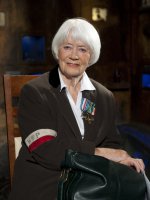Danuta Szaflarska is a Actor Polonaise born on 6 february 1915 at Nowy Sącz (Pologne)

Danuta Szaflarska (born February 6, 1915) is a Polish screen and stage actress. In 2008 she was awarded the Złota Kaczka for the best Polish actress of the century. Szaflarska participated in the Warsaw Uprising as a liaison. Szaflarska was awarded the Order of Polonia Restituta, Commander's Cross and Commander's Cross with Star, one of Poland's highest Orders and Gold Medal of Gloria Artis (2007).
Vie privée
Danuta Szaflarska fut mariée en premières noces au musicien Jan Ekier.
Source : Wikidata
Danuta Szaflarska

Birth name Zofia Danuta Szaflarska
Nationality Pologne
Birth 6 february 1915 (109 years) at Nowy Sącz (Pologne)
Awards Medal for Merit to Culture, Knight of the Order of Polonia Restituta
Nationality Pologne
Birth 6 february 1915 (109 years) at Nowy Sącz (Pologne)
Awards Medal for Merit to Culture, Knight of the Order of Polonia Restituta
Biography
Pendant la Seconde Guerre mondiale, elle participe à l'Insurrection de Varsovie en tant que courrier.Vie privée
Danuta Szaflarska fut mariée en premières noces au musicien Jan Ekier.
Usually with
Filmography of Danuta Szaflarska (9 films)
Actress
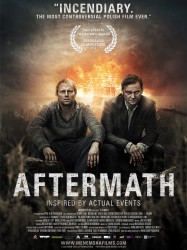
Aftermath (2012)
, 1h47Genres Drama, Thriller
Themes Films about religion, Political films, Films about Jews and Judaism
Actors Maciej Stuhr, Jerzy Radziwiłowicz, Zuzana Fialová, Zbigniew Zamachowski, Danuta Szaflarska
Roles the elderly herbalist
Rating72%





The film is a contemporary drama. It takes place in the fictional village of Gurówka in 2001. The story begins with the return of Franciszek Kalina (Ireneusz Czop) to his hometown in rural Poland after having lived in Chicago for decades. He learns that his brother Józef (Maciej Stuhr) is shunned by the community for acquiring and displaying on his farmland dozens of Jewish tombstones which he discovered had been used by German occupying forces as paving stones in a now abandoned road. Józef is gathering the tombstones everywhere in the settlement and moves them into his own field to survive from oblivion. Against the growing opposition of the town residents, the Kalina brothers attempt to learn more about what happened to the Jews of the village. Their personal relationship, harsh after the brothers met, warms and becomes more cooperative after they both find themselves opposed by the whole village. The older priest blesses the brother and urges him to continue gathering the tombstones while the new one, to head the parish soon, displays no sympathy for Jews. Franciszek discovers in a local archive that his father along with other men of the village got the land that had been owned by Jews before the war. He is eager to study the truth. After speaking to some of the oldest residents in the village, they later realize that half the residents murdered the other half (led by a neighbor and their father Stanisław Kalina). This discovery results in a terrible fight and split between the brothers after a dispute about the bones of the Jews they found the night before. Józef, after learning that their own father was directly involved in the murder of the Jews who were burned to death in Józef's family's former house, the brother's roles are reversed and it is Józef that wants to hide the truth from coming out to the world and Franciszek that wants all the world to know the truth and for the bones of the murdered Jews to be taken to their wheat fields and buried with their headstones, so as to not compound the terrible sins of their father and the neighbors. In their fight, Franciszek comes close to killing his brother Józef but Franciszek stops himself, puts the ax down and leaves the village but is returned to the village by a hospital nurse/doctor, the daughter of one of the oldest surviving neighbors who had known the truth but kept it secret, to see his brother beaten, murdered and crucified in their own yard. The movie ends with a scene of a group of young and older Israeli Jews being led by an Orthodox Rabbi reciting the Kaddish, the Jewish prayer in memory of the dead, in front of a formal memorial stone, at the now restored cemetery that Józef had made in his fields, while Franciszek watches with respect, lights a candle, leaves it on one of the tombstones and nods slightly to the scene, turns and walks away, satisfied that these Jews are now buried where their lives and their deaths, can be remembered and honored, while at the same time, lighting a candle, in remembrance and in honoring his own brother, Józef who was crucified by unknown neighbor(s), symbolically dying for the sins of his father and the neighbors.
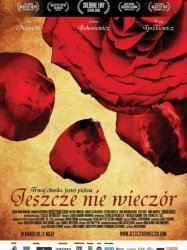
Before Twilight (2009)
, 1h36Genres Drama, Science fiction, Comedy, Fantasy, Romance
Actors Wieńczysław Gliński, Roman Kłosowski, Irena Kwiatkowska, Jan Nowicki, Nina Andrycz, Danuta Szaflarska
Roles Barbara
Rating63%





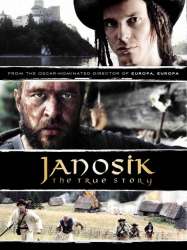
Janosik: A True Story (2009)
, 2h17Directed by Agnieszka Holland, Katarzyna Adamik
Genres Drama, War, Romance
Actors Michał Żebrowski, Danuta Szaflarska, Jarosław Boberek, Joanna Kulig, Małgosia Bela, Maja Ostaszewska
Rating50%





XVIII siècle. Janosik a passé sa jeunesse dans l'armée et il a été confronté à la violence, à la cruauté et à l'injustice. En rentrant chez lui, il rejoint une bande de brigands. Intrépide, charismatique et guerrier habile, il s'impose très vite comme leur chef. Volant les riches pour redistribuer aux plus démunis, magnanime, laissant la vie sauve à ses victimes, il devient rapidement très populaire dans la région. Mais son insolent succès réveille des haines et des jalousies : désormais, son existence est menacée....

Faustina (1995)
, 1h15Genres Drama
Actors Dorota Segda, Danuta Szaflarska, Teresa Budzisz-Krzyżanowska, Stanisława Celińska
Rating64%





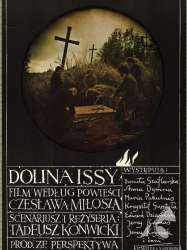
The Issa Valley (1982)
, 1h50Actors Anna Dymna, Danuta Szaflarska, Ewa Wiśniewska, Jerzy Kryszak, Joanna Szczepkowska, Włodzimierz Boruński
Rating60%





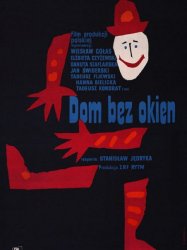
The Impossible Goodbye (1962)
, 1h38Directed by Stanisław Jędryka
Origin Pologne
Genres Drama
Actors Wiesław Gołas, Józef Kondrat, Danuta Szaflarska, Elżbieta Czyżewska, Tadeusz Fijewski, Janusz Ziejewski
Roles Zofia Szarlit
Rating66%






The Warsaw Debut (1951)
, 1h41Directed by Jan Rybkowski
Genres Historical, Musical
Themes Films about music and musicians, Films about classical music and musicians, Musical films
Actors Emil Karewicz, Jan Koecher, Jerzy Duszyński, Nina Andrycz, Maria Kaniewska, Jan Kurnakowicz
Roles Countess Krystyna
Rating56%






Treasure (1949)
Directed by Leonard Buczkowski
Origin Pologne
Genres Comedy, Romance
Actors Wanda Jakubińska, Alina Janowska, Jadwiga Chojnacka, Danuta Szaflarska, Adolf Dymsza, Jerzy Duszyński
Rating69%






Forbidden Songs (1947)
, 1h37Directed by Leonard Buczkowski
Origin Pologne
Genres War, Musical
Actors Zofia Mrozowska, Kazimierz Wichniarz, Andrzej Łapicki, Jan Kurnakowicz, Stanisław Łapiński, Jerzy Duszyński
Rating69%





 Connection
Connection



